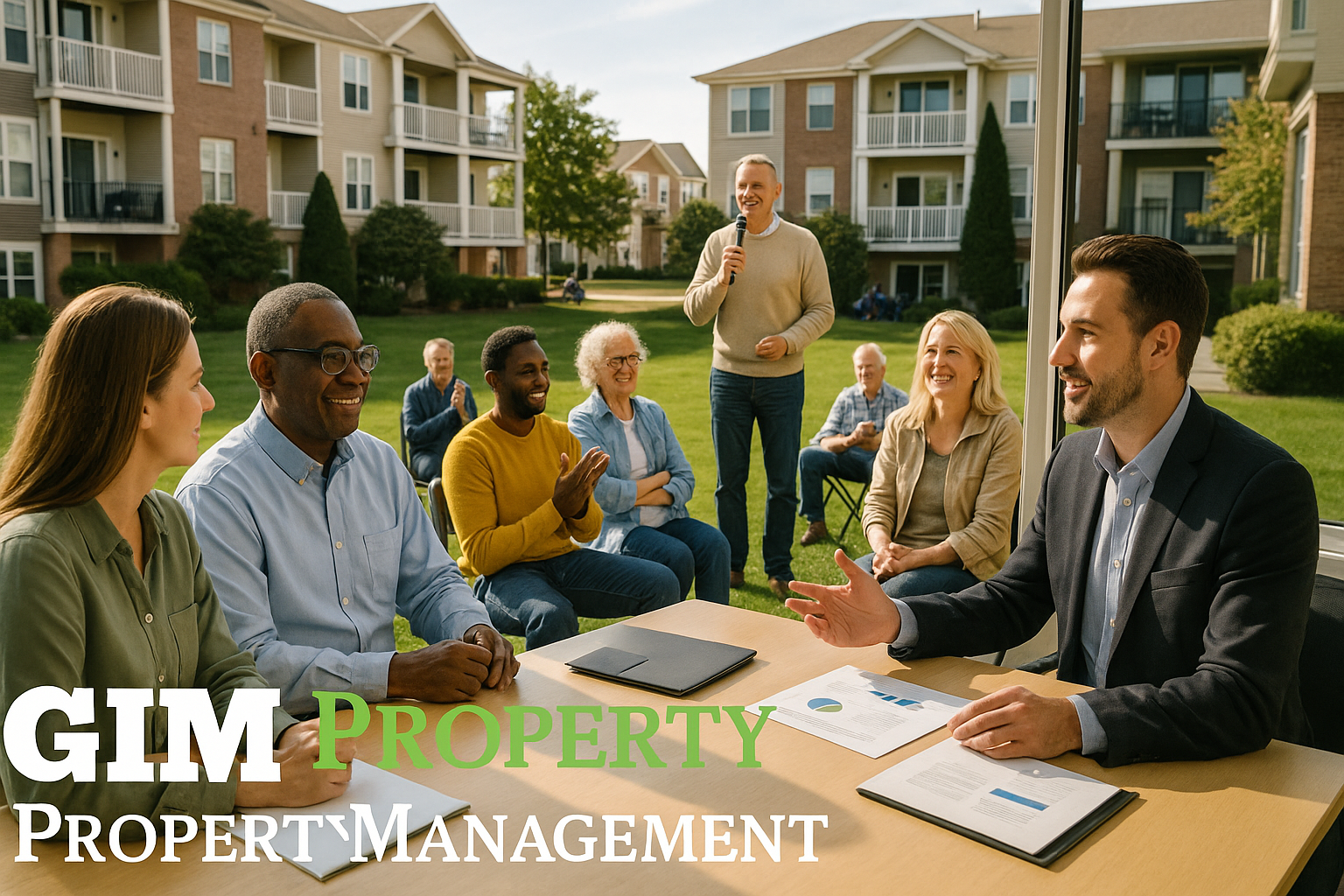Connect with Our Property Experts Today
Discover how transparent communication and trust-building enhance resident satisfaction and community harmony in Massachusetts property management.

Discover how transparent communication and trust-building enhance resident satisfaction and community harmony in Massachusetts property management.

mdx
Building a harmonious community is at the heart of successful property management. At GIM Property Management, we understand that fostering effective resident relations is not just about maintaining peace—it's about ensuring that board decisions reflect the best interests of the community. Transparent communication and trust-building are essential in this process, as they enhance satisfaction and fulfill fiduciary duties.
Unlock the power of effective resident relations with GIM Property Management's expert strategies. Are your board decisions fostering a harmonious community? Delve into the nuances of resident relations, a cornerstone of successful property management.
Resident relations encompass the strategies and practices used by property management and HOA boards to engage with and support the residents of a community. These relations are crucial, as they directly impact community satisfaction, trust in governance, and overall property value. A well-managed community is one where residents feel heard and valued, leading to a more cooperative living environment.
Several key factors contribute to why this can be significant:
Clear communication ensures that residents are well-informed about community rules, events, and any changes. This clarity prevents misunderstandings and helps maintain a peaceful living environment.
Actively involving residents in decision-making processes helps in building a stronger community bond and ensures that their needs and concerns are addressed.
Transparency is vital for building trust. When board decisions and financial management are transparent, it reassures residents that their community is being managed responsibly.
Implementing systems for residents to voice their concerns and suggestions ensures that the board is responsive and adaptive to the community's needs.
Property management plays a crucial role in maintaining and enhancing resident relations. Effective management addresses both the physical and operational needs of a community.
Professional management ensures that these tasks are handled efficiently, contributing to a well-functioning community.
Implement Regular Updates
Develop a Feedback System
Enhance Transparency
Promote Resident Engagement
Conflict Resolution Training
Utilize Technology
Community Surveys
Regular Maintenance Updates
Emergency Preparedness Planning
Celebrate Community Achievements
Need Help Managing Your Budget or Strategy? At GIM Property Management, our team is ready to assist in optimizing your community's resident relations strategy. Contact us today to learn how we can support your board in fostering a harmonious and engaging community.
Effective resident relations are crucial for community satisfaction and value preservation. By prioritizing transparent communication, fostering resident engagement, and implementing robust feedback systems, boards can ensure they meet their fiduciary responsibilities while enhancing community harmony. Professional management plays a key role in executing these strategies efficiently.
Request a consultation with GIM Property Management today to explore how we can help elevate your resident relations and community management strategies.
Reach out to learn how we can enhance your community's resident relations.
Contact Us